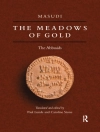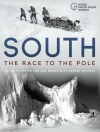Examines the lure of mountains in German literature, philosophy, film, music, and culture from the Middle Ages to the twenty-first century.
Mountains have always stirred the human imagination, playing a crucial role in the cultural evolution of peoples around the globe and becoming infused with meaning in the process. Beyond their geographical-geological significance, mountains affect the topography of the mind, whether as objects of peril or attraction, of spiritual enlightenment or existential fulfillment, of philosophical contemplation or aesthetic inspiration. This volume challenges the oversimplified assumption that human interaction with mountains is a distinctly modern development, one that began with the empowerment of the individual in the wake of Enlightenment rationalism and Romantic subjectivity. These essays by European and North American scholars examine the lure of mountains in German literature, philosophy, film, music, and culture from the Middle Ages to the present, with a focus on the interaction between humans and the alpineenvironment. The contributors consider mountains not as mere symbolic tropes or literary metaphors, but as constituting a tangible reality that informs the experiences and ideas of writers, naturalists, philosophers, filmmakers, and composers. Overall, this volume seeks to provide multiple answers to questions regarding the cultural significance of mountains as well as the physical practice of climbing them.
Contributors: Peter Arnds, Olaf Berwald, Albrecht Classen, Roger Cook, Scott Denham, Sean Franzel, Christof Hamann, Harald Höbusch, Dan Hooley, Peter Höyng, Sean Ireton, Oliver Lubrich, Anthony Ozturk, Caroline Schaumann, Heather I. Sullivan, Johannes Türk, Sabine Wilke, Wilfried Wilms.
SEAN IRETON is Associate Professor of German at the University of Missouri. CAROLINE SCHAUMANN is Professor of German Studies at Emory University.
İçerik tablosu
Introduction: The Meaning of Mountains: Geology, History, Culture – Sean Ireton and Caroline Schaumann
Prelude: Classical Mountain Landscapes and the Language of Ascent – Dan Hooley
Terra Incognita? Mountains in Medieval and Early Modern German Literature – Albrecht Classen
From Meadows to Mountaintops: Albrecht von Haller’s’Die Alpen’ – Caroline Schaumann
Geo-Poetics: The Alpine Sublime in Art and Literature, 1779-1860 – Anthony Ozturk
Time and Narrative in the Mountain Sublime around 1800 – Sean Franzel
Faust’s Mountains: An Ecocritical Reading of Goethe’s Tragedy and Science – Heather I. Sullivan
Spectacular Scenery and Slippery Descents: Narrating the Mountains of Tropical Polynesia – Sabine Wilke
Fascinating Voids: Alexander von Humboldt and the Myth of Chimborazo – Oliver Lubrich
From Eros to Thanatos: Hiking and Spelunking in Ludwig Tieck’s Der Runenberg – Peter Arnds
Geology, Mountaineering, and Self-Formation in Adalbert Stifter’s Der Nachsommer – Sean Ireton
‘An Apparition from Another World’ — The Mountains of the Moon and Kilimanjaro from the Perspective of Nineteenth-Century Germany – Christof Hamman
Leaving the Summit Behind: Tracking Biographical and Philosophical Pathways in Richard Strauss’s Eine Alpensinfonie – Peter Höyng
Elevation and Insight: Thomas Mann’s Der Zauberberg – Johannes Turk
‘The Essence of the Alpine World Is Struggle’: Strategies of Gesundung in Arnold Fanck’s Early Mountain Films – Wilfried Wilms Ph D
‘Mountain of Destiny’: The Filmic Legacy of Nanga Parbat – Harald Hoebusch
Spatial Orientation and Embodied Transcendence in Werner Herzog’s Mountain Climbing Films – Roger F. Cook
W. G. Sebald’s Magic Mountains – Scott Denham
Conflicting Ascents: Inscriptions, Cartographies, and Disappearance in Christoph Ransmayr’s Der fliegende Berg – Olaf Berwald
Works Cited
Notes on the Contributors
Index
Yazar hakkında
SEAN IRETON is Associate Professor of German in the School of Languages, Literatures, and Cultures at the University of Missouri.












